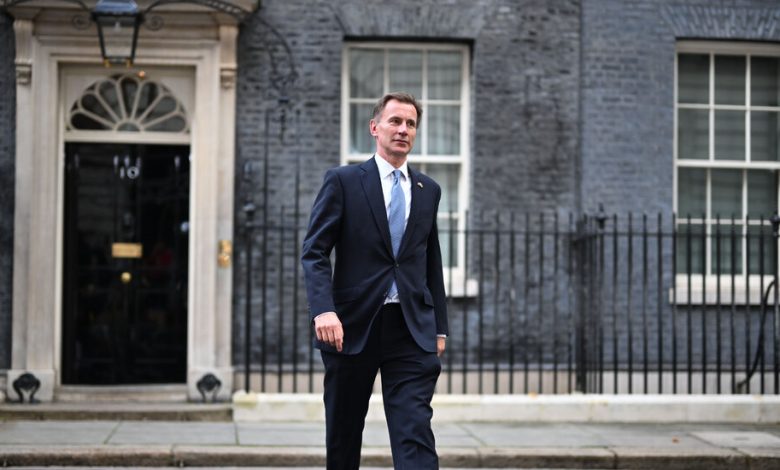What to Expect from the U.K.’s Budget Proposals Today

LONDON — Less than two months after an unfunded tax-cutting plan sent Britain’s currency plunging and its borrowing costs soaring, toppling a new prime minister, the Conservative government will outline new proposals on Thursday to repair the damage, plug a huge hole in government finances and try to restore stability.
Britons have been warned to expect bad news.
“I’ve been explicit that taxes are going to go up,” the chancellor of the Exchequer, Jeremy Hunt, said recently, ahead of an announcement that is also expected to include painful cuts to government spending programs.
Because financial markets lost confidence in Britain’s economic management under the previous prime minister, Liz Truss, the task facing Mr. Hunt is harder than it would have been had September’s gamble with the economy never taken place.
Seeking to restore credibility, Mr. Hunt will take some tough measures. They could include the following:
A hit on energy firms. Energy companies have made huge and unexpected profits thanks to the surge in oil and gas prices resulting from the war in Ukraine, and Prime Minister Rishi Sunak introduced a modest windfall tax on them in May, when he was chancellor of the Exchequer. But the opposition Labour Party has demanded an expansion of taxes on utilities that have profited from the conflict. It’s a popular policy among voters and the cash-starved government is likely to do embrace it.
Less help on energy bills. Ms. Truss wanted to limit the cost all people pay for each unit of energy for two years. That promised to be very expensive for the government, akin to writing a blank check, the size of which would depend on the evolution of global fuel prices. Ms. Truss’s plan is being trimmed back to six months but the question is what happens after that. Mr. Hunt has promised targeted help for the vulnerable but how many Britons will benefit and at what cost should be announced on Thursday.
Tax rises for all. Mr. Hunt on Sunday suggested that just about everyone would pay more tax. One way that could happen, without having to formally raise tax rates, would be to freeze the threshold at which people start to pay income tax (or move into a higher band), and not raise it to keep up with inflation. With inflation running into the double digits, the tax yield would rise in the next few years, affecting millions of Britons.
Squeezing the rich. Ms. Truss wanted to cut the burden on the highest earners by scrapping the top 45 percent rate for earnings over £150,000 a year, more than $178,000. That idea provoked fierce opposition and has already been axed, so the question now is whether Mr. Hunt will go further. He could lower the level at which the 45 percent rate kicks in, perhaps to £125,000. Or he could keep the threshold the same but increase the top rate to 50 percent.
Spending cuts. Public spending programs are destined to be reined in so the question is:by how much and which ones? Any cuts to health care, for example, would be particularly unpopular after a pandemic in which overburdened health workers were hailed as heroes. And the government will be sensitive to suggestions that it is returning to the belt-tightening policies of austerity that were put in place after 2010 in the wake of the financial crash. One issue is when spending curbs would take effect. One possibility is that the biggest share of the pain will be delayed for two years — conveniently after the next general election — though it is unclear whether that plan would reassure financial markets.




